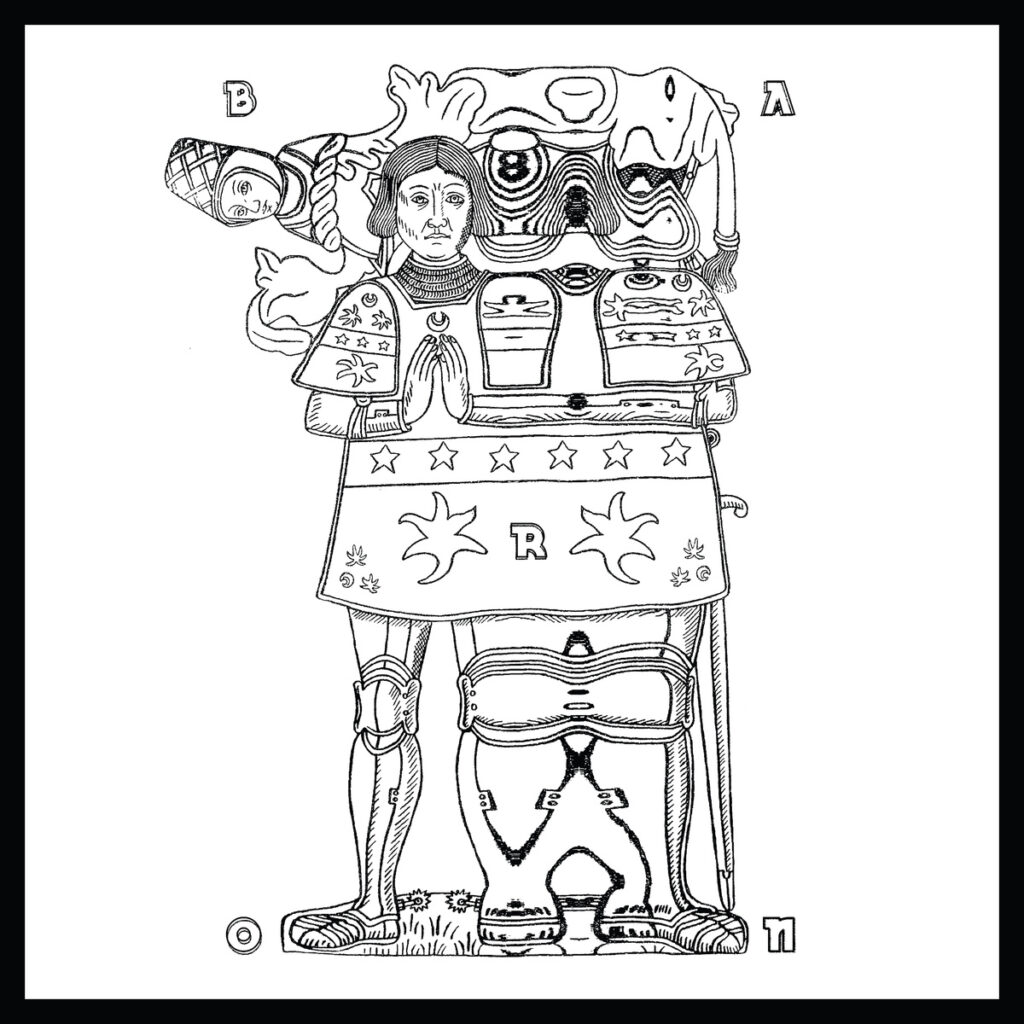There are a select few albums that seem to create and inhabit a micro-environment of their own. For want of a better description, there’s an extra-auditory presence when you play them, something beyond just the words and music coming out of the speakers. I’ve had Baron’s Torpor in my possession for a few months, and I now realise that I’ve been sub-consciously rationing my plays of this album, not because it hasn’t grabbed my attention, but because I don’t want to break its spell.
Torpor is Baron’s second album (or third if you count their debut Illegitimate Nephew CDR), and moves on from the dense, new wave-ish psychedelia of 2013’s Columns. Band leader Alex Crispin was a founding member of hardcore proggers Diagonal, but Baron are entirely divested of his former band’s headlong charge into battle. Instead, the steps they take on Torpor are more measured – sometimes faltering, sometimes exploratory, but always with their eyes fixed firmly on the horizon.
There’s a sense of moving through a landscape, of another world being gradually revealed, which is reinforced by the peculiar snatches of story in the accompanying booklet. They seem to depict a pre- or perhaps post-technological society eking out a living in the aftermath of some catastrophe, where religion and nature are now the twin constants. As I read and the music plays, it brings to mind similarly-themed novels such as Riddley Walker, Inverted World and the recent Dark Eden, where the characters fetishise and assimilate ancient artefacts and stories to their own purposes.
It may occasionally sound on Torpor that Baron have stumbled upon a dusty cache of early Vertigo LPs in some desert cave, but they’re far from mere copyists. This isn’t a ‘modern’-sounding album, but neither is it enthralled to the past. Instead, it exists completely in its own time. ‘Dragonfly’ slowly emerges through a shimmering heat haze of organ, Crispin’s distinctive baritone voice – somewhere between Scott Walker and Jim Morrison – singing against the dry beating of drums. It feels like the beginning of an alchemical ritual, the vocals rising and colliding against the organ, recalling Van Der Graaf Generator at their most exotic.
The album is arranged in two parts, with ‘Dragonfly’ and the following trio of ‘Mark Maker’, ‘Wild Cry’ and ‘Dark Down’ cleaving to this sense of the ceremonial, a calling down of the spirits as we gaze out in terror and wonder beyond the campfire’s edge. ‘Mark Maker”s loose stitching of medieval guitar resolves into an extended coda of serene but sepulchral organ, while Crispin urgently repeats the line "can you see in the dark?" in the more invocatory ‘Wild Cry’.
Part two begins with ‘Stry’, its fragmentary introduction gradually coalescing into a beautiful guitar line – courtesy of Wolf People’s Joe Hollick – that’s so reminiscent of Talk Talk, it makes me want to cry out with joy. We’re on a journey now, the throb of bass urging our procession on through the night. Crispin sings of "real danger" before a dramatic switch up into heavier territory, with a heft to the riff that Baron haven’t hinted at before, the song ascending to a space rocking climax.
‘Sleepless’ builds on this monolithic power, alternating between barrage and melancholy, Sabbath meets Fairport Convention. It pauses, then another riff thrillingly kicks in, with some great organ shredding over the top. ‘Deeper Align’ begins with a driving gothic bassline, the title chanted as though to ward off evil, before dissolving into a trippy breakdown, the one overtly psych moment on an album which mostly defies easy categorisation. Finally, the lovely ‘Albedo Dei’ floats in on a wave of controlled feedback, a hymn of thanks for deliverance from darkness, the sun rising again over a cold but life-sustaining world.
We usually think of ‘torpor’ as being another word for lethargy, but its precise definition is closer to hibernation, where both body temperature and metabolic rate are decreased. Torpor similarly has the ability to take corporeal control of the listener, creating a dream-like state of suspended animation in which the sleep of reason can take hold. It’s a sometimes unnerving but ultimately exhilarating experience.
<div class="fb-comments" data-href="http://thequietus.com/articles/19036-baron-torpor-review” data-width="550">


